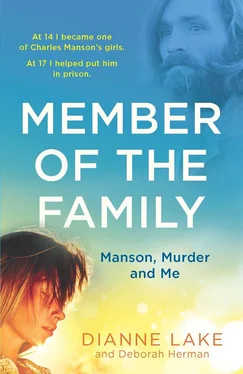I must have taken my cues from my mother because she largely allowed him the space to indulge his whims. Despite his moodiness, he could do no wrong in her eyes. She interacted with him in a manner that bordered on worship and defined much of our domestic lives. She watched him closely, gauging his expressions before she would interact with him. When he got home from work she would wait until he settled in before beginning any conversation. She wouldn’t present him with our misdeeds the minute he walked in the door. Instead we were instructed to greet him cheerfully. He was the stoic king of our castle and we learned to wait until he addressed us before sharing too much with him. I wanted him to notice me, and if he did, I held on to the moment in my heart and in my memory. My remembrances of the times he would grumble and tease me about something that would make me feel bad or tell me “I’ll give you something to cry about” would be countered by his moments of playfulness even if they were not directed at me.
Perhaps because of my father’s unpredictability, my mother controlled the money in the house, as she was the more responsible person. At the end of the week my father handed her whatever money he’d earned painting houses, and I would watch as she paid all the bills. Each month my mom would make sure that the mortgage on the house was paid along with every other bill, spreading the envelopes on the table, writing out checks, and asking me to lick the stamps. Then she would take them to the post office in town to mail them.
Each week she would give my father an allowance in cash and set aside our money for our food. She did all the shopping for us and prepared all our meals. She would pack his lunch in the morning, sometimes putting a little note in his brown bag. She also made dinner every night. Though my dad always seemed busy, he did take time to have dinner with us. This was my favorite time of day because he led the discussion and included me just as if I were a grown-up.
“Dianne, what are you learning in school?” he’d ask me.
“Be right back,” I’d reply, running off to gather a stack of papers. “Look, Daddy, I got good grades on these.” I’d spread out my spelling tests, writing practice books, and math papers, showing him my schoolwork and my achievements and trying to impress him.
“That’s great. Keep up the good work.”
At dinner, my father would often bring up the books he was reading, eager to discuss them with my mother, and always somehow disappointed that she didn’t share his interest in them. For my part, I was excited in anything that interested him.
“I am reading a great book, Shirley. I think you should read it too,” he said one night while we were eating.
“You know I don’t have that much time to read,” my mother responded.
“What is it about, Daddy?” I asked. “I can read now.” I was in the top reading group in my class.
“Oh, honey, I think this is a little too old for you,” he said. “But I will tell you about it. It’s by this guy named Jack Kerouac, and it’s about two friends who go on this road trip to find out more about themselves.”
“Read it to me.” I liked hearing my father’s voice whether he was reading me Horton Hatches the Egg , which I could now read myself, or if he read to me from his own books that I didn’t really understand.
“Well, actually, I just got another book by Jack Kerouac,” he said, getting up from the table and reaching into the pocket of his jacket, which was hanging on a hook by the door. The book cover had funny writing and a man with a woman riding on him piggyback.
“This book is called The Dharma Bums ,” he informed me. “Here is something he says in the book: ‘One man practicing kindness in the wilderness is worth all the temples this world pulls.’”
“I like that, Daddy.” I had no idea what it meant, but I liked that it had the word kindness in it. It must have been something good. I gave my daddy a hug, and he left the table to continue working on a painting.
Another night after dinner, he had retreated to the living room to paint when he noticed I was sitting outside the room. I didn’t want to disturb him but wanted to watch him work.
“Hey, little girl, do you like this music?” he asked suddenly. We had a small record player, and while he painted, he usually would play something from his collection.
“What is that?” I had never heard sounds like the ones coming from the record. There wasn’t really any singing, just music.
“It’s jazz,” he replied. “Isn’t it cool?”
My dad showed me the album cover. It was wild. Then he took out another record and showed me how to carefully clamp an album between my hands by the edges so it wouldn’t get scratched. He used a black brush on the record’s surface before he put it on the record player, placing the needle delicately on the first groove and inviting me to sit down with him.
We sat on a love seat next to his easel. I watched as the smoke rose from his cigarette, curling its way toward the ceiling. Every so often he would blow a smoke ring just to get me to laugh.
“Listen to this part— bah bah bah ,” he sang along with the trumpet. After a while we were both bobbing our heads up and down in time to the beat. The music changed with each instrument. I liked the timpani and the cymbals; I had never heard anything like them.
“Dianne, that is Buddy Rich. He is arguably the best drummer in history.”
Now I was rocking back and forth.
After a while my eyelids got heavy. The last thing I remembered were the sands of a trumpet. In the morning, I woke up in my bed, the beat still ringing in my ears.
One morning during the early months of my second-grade year, I was in the kitchen with my mother when my father walked in.
“Do you want some coffee? I brewed a fresh pot,” my mom said, apron tied around her waist.
“Sure, honey,” he replied, and then, as if it was part of an ongoing discussion, he said, “Too bad we don’t live in California. Do you know they get to listen to jazz all the time?”
“I thought if you want to talk about jazz, the scene is in New York?” she asked.
“There is a happening scene for artists and poets in Venice Beach, California. I read about this place called the Gas House. Everyone goes there, including Jack Kerouac. They opened it last year, and it is an exciting place for artists to get started. I could get my master’s degree out there and get somewhere.”
I could see my mother’s body tense as she went about making breakfast for him. Her fingers tightly gripped the handle of the pan as she scraped his eggs onto his plate. “Look, we have a nice house here and the kids are all settled,” my mother said. “It is hard enough to take care of three kids, a house, and a husband. Can’t you do your master’s here?”
My dad relented and the conversation petered out. He continued working as a house painter during the day, keeping his desire for a change of scenery mostly to himself. While I never knew exactly what he was thinking, it was clear there were things about our life, about his life, that were not satisfying him. Still, beyond my mother, he really had no one he could talk to about this desire to break from the mold of his life that was gradually hardening around him. He couldn’t tell his father about how he felt. Grandpa’s reply would have been “house painting kept food in your mouth and kept you alive. Do you think you are better than me?”
My father remained largely silent on the matter, but none of this eased his malaise. It’s hard to say exactly what impact his reading had on him, but there’s no doubt that it influenced him and enhanced his impatience. The Beats. Jazz music. These were the first sounds of the underground reverberating out from the coasts toward Middle America and making men like my father question the choices they’d made.
Читать дальше












